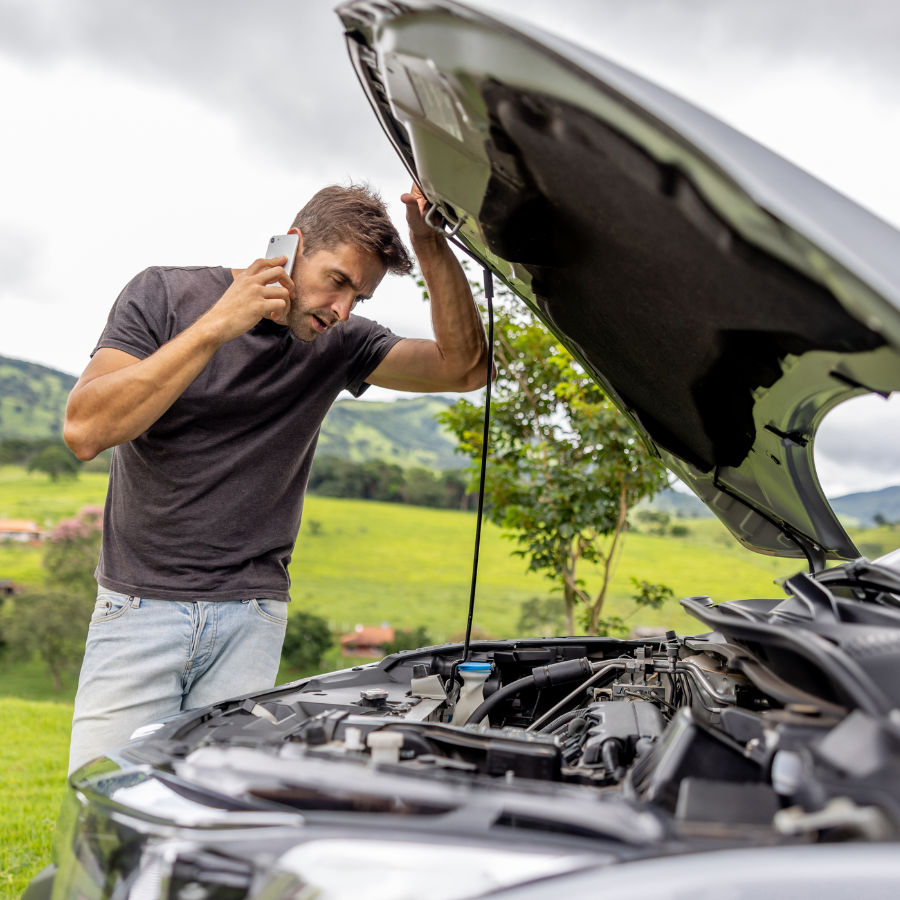There’s nothing like that new-car smell. It’s an olfactory boost that heightens the excitement of sitting in a new car, looking at the low number on the odometer, and thinking of the possibilities of the open road ahead. Manufacturers go to great lengths to ensure those initial sensory experiences are an integral part of the new-car purchase experience. People who trade in their cars every few years will say they want the new features, upgraded technology, and a fresh warranty but getting that sensory experience again doesn’t hurt either.
But let’s face the facts. That scent is the result of outgassing, when the synthetics in upholstery, dashboards, and other components release vapours that are temporarily confined in the vehicle’s interior. It’s a fleeting moment. Practically speaking, how long should we keep our cars?
The average length of new-vehicle ownership ranges from about seven to 15 years, with most automotive data companies reporting that the point when most people trade their vehicles is between 10 to 12 years. The decision on when to get a new vehicle depends on many factors, including the wants and needs of its owner.
Making the Most of Your Vehicle Investment: Loan Terms, Warranties and Long-Term Benefits
Automotive financing terms range from one to eight years, with six years being the average term length for a car loan. According to AutoTrader.ca, most manufacturers offer a basic three-year/60,000 km warranty on gas-powered vehicles, with some offering up to five years and 100,000 km. Most gas cars are covered by an additional five-year, 100,000 km, powertrain warranty, though this varies in both duration and distance covered from one manufacturer to another. With careful use and regular servicing, you can expect a few years of trouble-free driving beyond the warranty – and after the loan as been paid.
“Unless it is a true lemon, keeping an older car is almost always cheaper than making payments on a new one,” says Forbes magazine. And it’s a point of pride for some vehicle owners to keep a car for its entire functioning life, logging hundreds of thousands of kilometres.
BC’s Electric Vehicle Leadership: Adoption Infrastructure, and Advancing Battery Technology
 Nowhere in North America is the electric vehicle (EV) adoption rate higher than in British Columbia. We’re No. 1 in new EV sales as a percentage of all vehicle sales, with EVs comprising about 18% of new car sales in 2023. According to BC Hydro’s January 2024 figures, there are more than 150,000 EVs on B.C. roads, and the network of public charging stations in communities (Vancouver alone has more than 1,000) and along travel corridors is expanding; BC Hydro plans to add 3,000 more in the coming decade.
Nowhere in North America is the electric vehicle (EV) adoption rate higher than in British Columbia. We’re No. 1 in new EV sales as a percentage of all vehicle sales, with EVs comprising about 18% of new car sales in 2023. According to BC Hydro’s January 2024 figures, there are more than 150,000 EVs on B.C. roads, and the network of public charging stations in communities (Vancouver alone has more than 1,000) and along travel corridors is expanding; BC Hydro plans to add 3,000 more in the coming decade.
Hybrid and all-electric battery packs last about eight years, or 100,000 miles. That average statistic is still influenced by the lower lifespan of early battery technology, but with recent advancements, newer-model hybrids and EVs are projected to last about 15 to 20 years.
Our life changes often trigger the need to change vehicles. According to many experts, personal and professional shifts occur in our lives every seven years. Changes in our job, address, family and children, and life priorities all have an impact on whether our vehicle is still suitable for our needs.
How you use your vehicle has an impact on its expected lifespan – whether it’s for work or pleasure, who in your household will be driving it. How it’s used and by whom also determines how it should be insured. Talk to your insurance broker about obtaining the right coverage.
Maximizing Your Vehicle Investment: Navigating Resale Value, Maintenance and Technological Advances

The resale value of vehicles varies by make, model, and market conditions. The disruption to supply chains caused by the pandemic, combined with a recent leap forward in technological advances, has caused short-term pinch points in the availability of some makes and models, and some fluctuations in resale values. In general, though, most of the cars with the best resale value are the mainstream, mid-range models, and not the luxury vehicles. Owners who get their vehicle serviced by the dealership will find that the dealer knows the new and resale market trends, and your car’s history, and can help you identify the optimum time to trade in your current vehicle and buy a new one.
Few things in our lives are changing at a faster rate than our cars are. The cars of the 20th century were comparatively inexpensive to repair, and owners found economies in doing some of the maintenance themselves. That is much less the case today. New cars have anywhere from 60 to 100 sensors and about 1,500 semi-conductor chips, making the car’s operation and diagnosis more efficient. Components last longer, but are more expensive to repair or replace. Your ability to afford major repairs may affect your decision on when to sell. Since data on how long people keep their cars is backward-looking, it’s hard to know the degree to which recent tech advances will contribute to the length of time people keep their cars.
Getting the most out of your car comes down to choosing a vehicle that is likely to serve your needs for the longest possible length of time. Have it maintained regularly at a trusted service centre and ask their advice on how to get the most out of your investment. Follow the market so that you’re informed when it’s time to make your next automotive decision. Have adequate insurance coverage for how your car is used.
Happy driving!




Reliance Insurance proudly serves
Burnaby and the Vancouver area